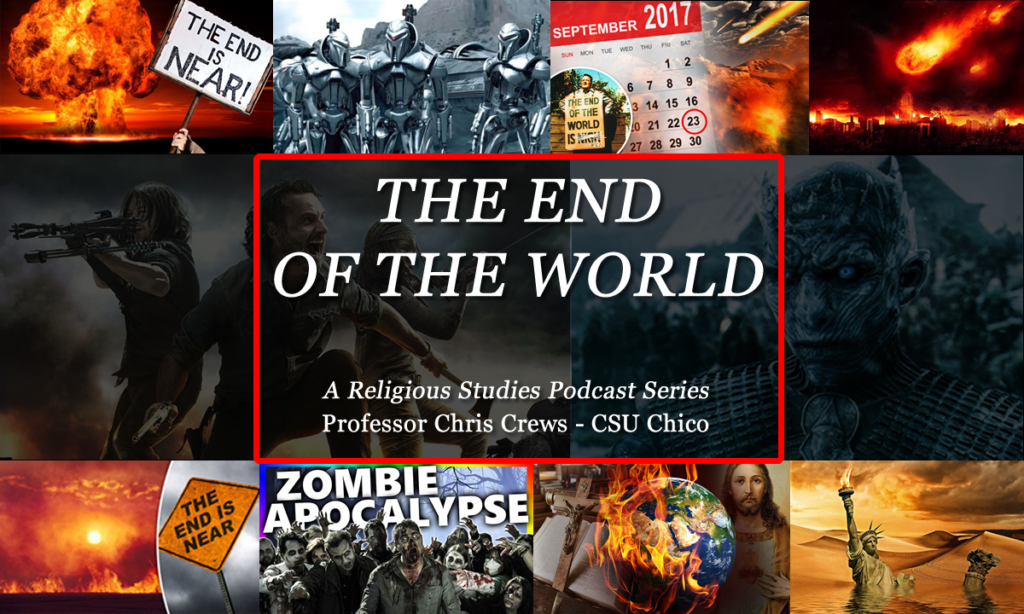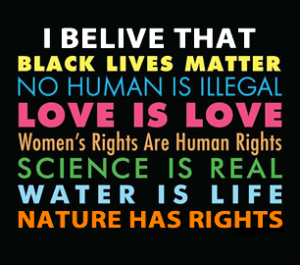A New Cosmopolitics – Religion Science and Spirit in Dialogue
As anyone who knows me can tell you, science and spirituality are both topics I am deeply fascinated in, and are topics I have written about in my academic practices, as well as devoted a lot of my personal energies towards. I think that’s one of the reasons I have felt pulled in my own work towards the intersection of religion and ecology, with a healthy dose of science studies underwriting both. So it was with pleasure that I ran into an article by David Korten on precisely these same issues. This particular article is part of the course readings for something called the Game Changer Initiative, which I am currently taking through the Pachamama Alliance, a US-based NGO. This course and their work is focused on building “a world that works for everyone: an environmentally sustainable, spiritually fulfilling, socially just human presence on this planet—a New Dream for humanity.”
In a Fringe universe, instead of being pulled into activism in college, there’s a good chance I would have gone into some ecological science field. I still have fond memories of being a young boy with my Edmund Scientific science lab setup in the basement, and remember those euphoric moments when the test tube of phenolphthalein solution magically turned pink with the right combination of ingredients. Even today I dream of setting up an elaborate home science lab and astronomy observation station.
So reading Korten’s piece was a treat, since I have been writing about some of the same issues he discusses, in particular the disconnect between our lives and the planet, and our spirits and the material, and how these connect to the larger idea of cosmology and creating a new world. In fact, a big part of my dissertation is precisely developing a case for a new Earthbound cosmopolitics of the Anthropocene. Interestingly, Korten, Brian Swimme, Thomas Berry (now passed) and others are doing something similar to my work on the Anthropocene and Gaian politics, but using the idea of the Ecozoic Era and The Universe Story.
He traces these along three strands, which he refers to as the Distant Patriarch, the Grand Machine, and the Integral Spirit cosmologies. I’ve pulled out a few excerpts that especially spoke to me.
We live at such a moment. Humanity’s current behavior threatens Earth’s capacity to support life and relegates more than a billion people to lives of destitution. This self-destructive behavior and our seeming inability to change have deep roots in the stories by which we understand the nature and meaning of our existence. The challenge before us is to create a new civilization based on a cosmology—a story of the origin, nature, and purpose of creation—that reflects the fullness of our current human knowledge; a story to guide us to mature relationships with one another and a living Earth.
Our creation stories have powerful implications for our understanding of our place in the cosmos and thereby shape our most foundational values, our politics, and the distribution of power in society.
The Integral Spirit story, by contrast, infuses all we behold in this life and beyond with profound meaning. All of creation is a sacred and ultimately unified expression of an eternal and intimately present divine will. All beings are interconnected and our fates are inextricably intertwined. As participants in and contributors to the ongoing process of creation, we each bear a sacred responsibility. Our lives take on profound meaning and purpose in relationship and service to the sacred whole.
This cosmology has the elements of the needed story for our time. It remains, however, largely a private story without the institutional sponsors that give the Distant Patriarch and Grand Machine cosmologies authority and public presence. The absence of institutional sponsorship helps to secure its authenticity, but the absence of public visibility limits its influence as a guide to rethinking and restructuring our human relationships with one another and nature.
A scientific culture that ignored or denied spiritual consciousness brought with it an implicit denial of life’s capacity for conscious self-direction. This in turn limited our ability to comprehend and embrace the richness, potential, and responsibilities of our nature as conscious, intelligent, self-directing participants in Earth’s interconnected, ever-evolving, ever-learning web of life.
That the reductionist story underlying most scientific inquiry to this day describes only one element of a larger reality does not invalidate the truth or utility of its contributions. It is essential, however, that we recognize how the myopia of classical scientific reductionism suppresses our sense of wonder, agency, responsibility to and for one another and living Earth, and our ability to actualize a democratic vision of the authentic popular sovereignty of self-governing peoples and an equitable distribution of power.
In its contemporary expression, the cosmology of the Integral Spirit draws from the many ways of human knowing. It embraces and melds insights from the frontiers of scientific observation, the world’s major religions, and the experience of indigenous peoples and mystics extending back to ancient times. In acknowledging both intelligent agency and material mechanism, it recognizes that agency plays out in an ordered living cosmos within a framework of rules, and it clearly distinguishes between free will and license. It affirms our human nature as spiritual beings with an epic calling to advance a sacred purpose, and it frames a vision of possibility to guide us to a viable future consistent with the divine will as revealed in our most comprehensive understanding of the cosmic unfolding.
As we follow the flow of the narratives from Integral Spirit to Sacred Living Earth to Living Earth Economies we move from the transcendent to the imminent, from the abstract to the practical, and begin to discern a pathway to a viable human future ripe with meaning and possibility.
 This is definitely a central part of where I would locate my own work, and I have always seen my work as a writer/storyteller, educator and activist as working towards this other vision of the world. I’ve tried to trace these influences of the old reductionist science through the emergence of an environmental consciousness that began to challenge this view, and continues to push the envelop of that old way of thinking today. That’s why I find some of the innovations around the rights of nature and indigenous rights movements combined with critiques of neoliberalism that I am studying in places like Ecuador, Bolivia and Nepal encouraging and important.
This is definitely a central part of where I would locate my own work, and I have always seen my work as a writer/storyteller, educator and activist as working towards this other vision of the world. I’ve tried to trace these influences of the old reductionist science through the emergence of an environmental consciousness that began to challenge this view, and continues to push the envelop of that old way of thinking today. That’s why I find some of the innovations around the rights of nature and indigenous rights movements combined with critiques of neoliberalism that I am studying in places like Ecuador, Bolivia and Nepal encouraging and important.
I see in them attempts to bring a new, third way of being into being, through constituent assemblies and political re-foundings and new understandings of deep ecology and bioregions and Earth systems. Instead of just talking about how nice these ideas would be in theory, these are living examples of social movements trying to enact the slogan, “another world is possible”. As Korten notes, what inspires these new movements is a “radical vision of democratic possibility,” or what some have referred to as a kind of sacred activism. It’s not an accident that he lists, among others, the Pachamama Alliance and Yale’s Forum on Religion and Ecology as part of this shift, both groups I have been getting more involved with in recent years, both from the ecological and spiritual perspectives.
Yes, we still have lots of problems to work out in these movements. As in all new experiments, some things clearly work better in theory, and less so when put into practice, but the fact that people are trying to imagine a new kind of cosmopolitics that takes something akin to what Korten calls the Integral Spirit path seriously is itself a huge shift. Without these first steps, there will be no movement or change, and we will all go down with the fossil fuel techno-dreams of neoliberalism to our untimely deaths.
There’s a lot to chew on in Korten’s piece, and it’s a long read, but I encourage folks to give it a read. You can find the whole article, from 2013, in Yes! Magazine: Religion, Science, and Spirit: A Sacred Story for Our Time.



